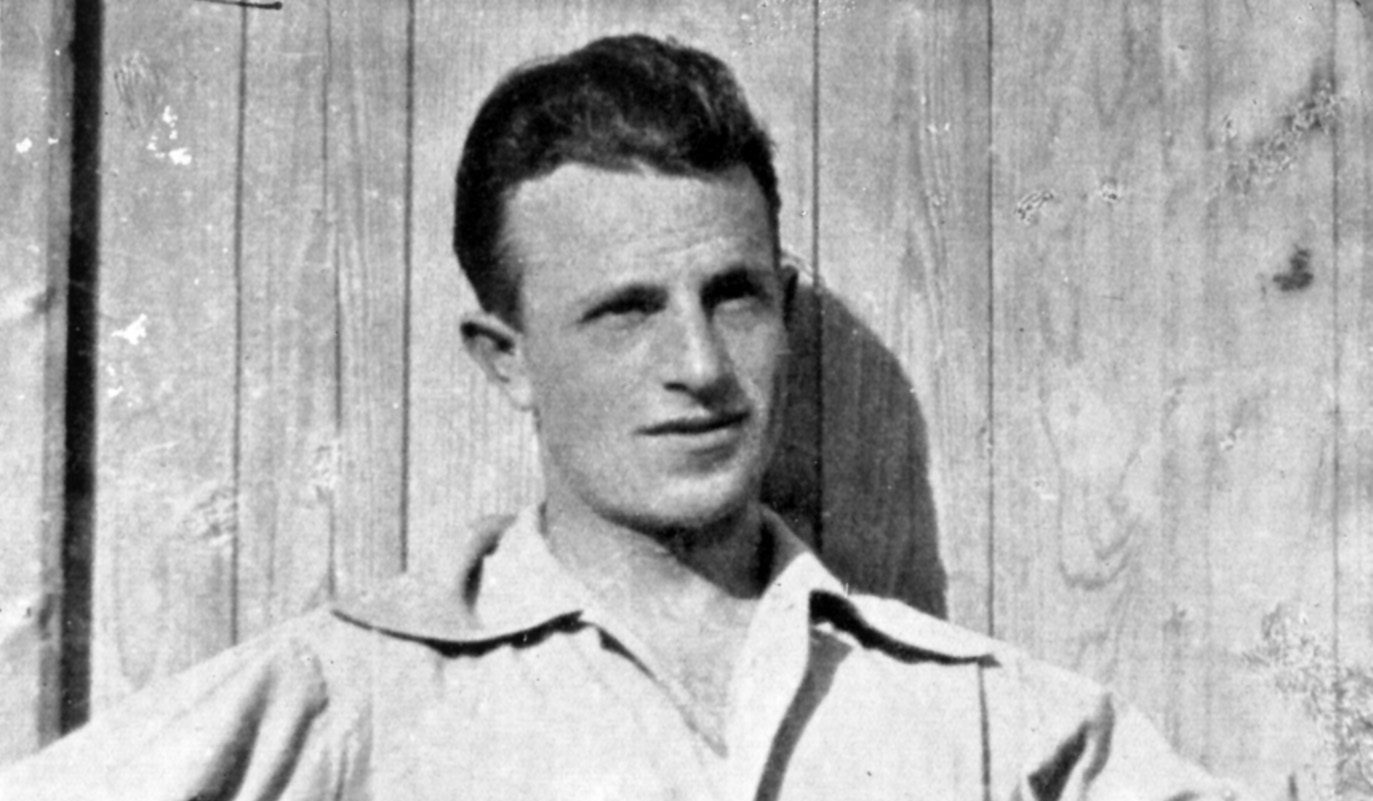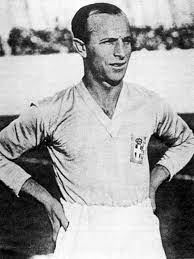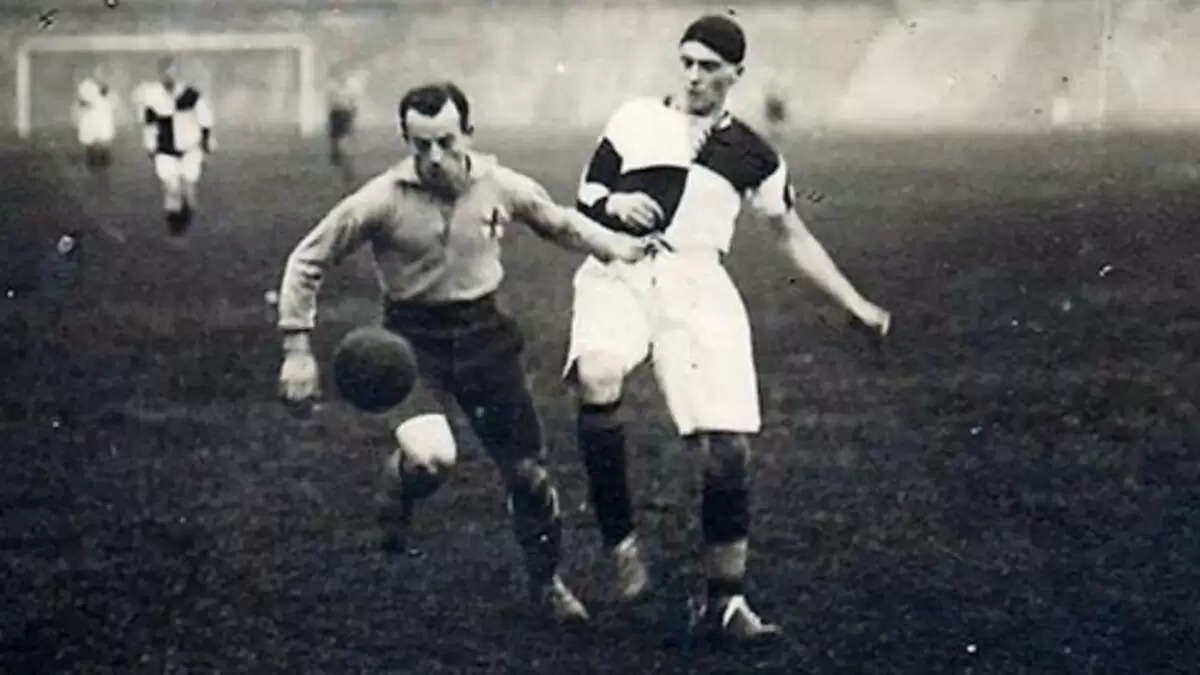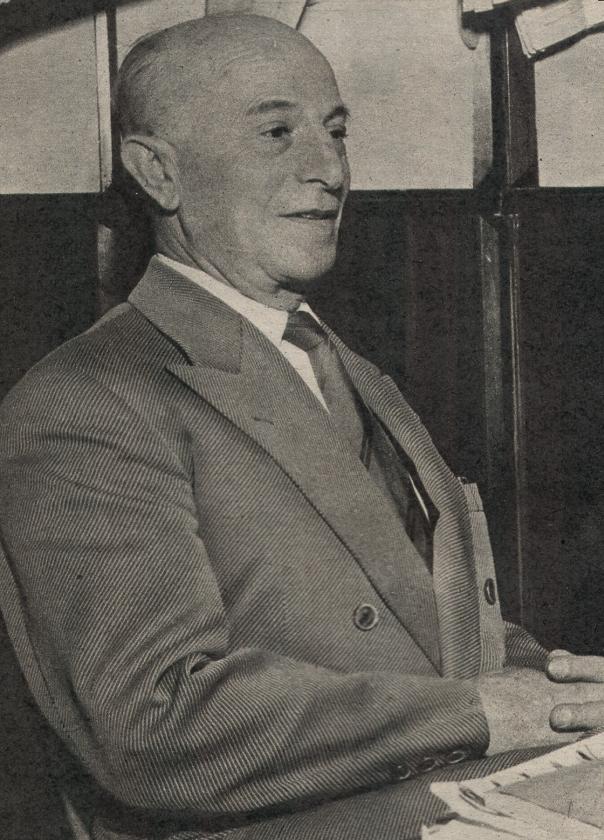
In the mosaic of football history, certain figures emerge as luminaries, leaving an everlasting imprint on the sport. Adolfo Baloncieri, born on July 27, 1897, in Modena, Italy, stands tall among these legends. A name synonymous with the golden era of Italian football during the early 20th century, Baloncieri's impact transcends his achievements as a player and coach. As we delve into the life and legacy of Adolfo Baloncieri, we uncover a tale of skill, leadership, and an enduring commitment to the beautiful game.
Quick Facts About Adolfo Baloncieri
| Name | Adolfo Baloncieri |
| Birthday | July 27, 1897 |
| Death | July 23, 1986 |
| Profession | Football player |
Early Life Of Adolfo Baloncieri
Adolfo Baloncieri's roots trace back to Castelceriolo in the province of Alessandria, Italy, though his family had ties to Caselle Torinese. However, his early years were shaped by a unique chapter in Rosario, Argentina, where the young Baloncieri spent 12 formative years. It was in Rosario, at the tender age of nine, that he first stepped into the world of football, driven by an unwavering passion for the sport that would define his life.
Despite an initial pursuit of accountancy studies, Baloncieri's fervor for playing sports eclipsed his academic endeavors. The familial ties to football ran deep; his older brother Mario was not only an amateur footballer in Alessandria but also ventured into sports journalism. Additionally, his cousin William Brezzi, a teammate at Alessandria and a national team player, shared in the familial football legacy.
Tragically, life presented its share of hardships. Baloncieri lost his brother Carlo to a drowning incident in Finale Ligure in August 1933, and his son passed away prematurely. In later years, he found solace in the company of his daughter Flora, a dedicated teacher, and a sister in Genoa.
Adolfo Baloncieri Club Career
Adolfo Baloncieri's journey from Argentina back to his homeland in 1913 marked the beginning of a storied football career. Upon his return, he swiftly integrated into the football scene, making his debut for Alessandria in 1914 at the tender age of 17, just before World War I brought a temporary halt to league fixtures. Baloncieri's commitment to the sport, however, extended beyond the pitch, as he found himself at the front lines during the conflict, serving as a gunner.
Post-war, Baloncieri emerged as a prominent figure in the footballing landscape of the 1920s, particularly with Torino. His tenure with the club was marked by significant triumphs, including the clinching of two national titles. Yet, one of these accolades faced revocation amid the infamous "Allemandi Case," a controversy that temporarily overshadowed the team's success.
International Success Of Adolfo Baloncieri
Adolfo Baloncieri's impact on the international stage solidified his status as a football luminary. As the captain of the Italy national team, he led the squad to a historic bronze medal at the 1928 Olympic Games, a testament to his leadership and prowess on the field. His influence extended beyond individual achievements, as he joined forces with Giuseppe Meazza to clinch the prestigious 1930 Coppa Internazionale, etching his name in the annals of Italian football history.
Baloncieri's international career was marked by remarkable consistency and goal-scoring prowess. Across the span of a decade, from 1920 to 1930, he earned 47 caps for Italy, becoming a linchpin in the team's success. With an impressive tally of 25 goals, Baloncieri holds the distinction of being Italy's sixth all-time highest goalscorer, a remarkable feat for a midfielder.
The Olympic stage served as a canvas for Baloncieri's artistry, as he not only captained the team to success in 1928 but also participated in the 1920 and 1924 editions. His total of eleven appearances and eight goals in Olympic football tournaments remains unmatched, making him the player with the most all-time appearances and goals for the Italy national side in this prestigious competition.
Baloncieri's international journey was a symphony of achievements, with each cap and goal contributing to the rich tapestry of Italian football. His legacy as a stalwart of the national team, a captain, and a prolific goalscorer endures, leaving an everlasting imprint on the history of the Azzurri.
Adolfo Baloncieri Playing Style
A virtuoso often positioned as an offensive playmaker, Adolfo Baloncieri embodied the epitome of football artistry. Renowned for his swift and nimble movements on the field, he seamlessly combined innate talent with an elegant playing style that left spectators in awe. His creative genius shone through as he orchestrated attacks with finesse, demonstrating impeccable technical skills that set him apart on the pitch.
Baloncieri's vision transcended the ordinary, allowing him to anticipate plays and execute precise passes that carved through opposition defenses. As a midfield maestro, he possessed an exceptional knack for goal-scoring, adding a dynamic element to his playmaking role. His ability to find the back of the net from midfield was not just notable but a defining feature of his multifaceted skill set.
In the tapestry of football, Baloncieri's legacy is etched not only as a quick and talented midfielder but as a player who elevated the position of the offensive playmaker to an art form. His on-field prowess was a harmonious blend of creativity, technical mastery, and an instinctive eye for goal, setting a standard that resonates with football enthusiasts even decades after his era.
Coaching Career Of Adolfo Baloncieri
Adolfo Baloncieri's pivot from player to coach marked a seamless transition that would shape the trajectory of Italian football. As he hung up his boots, Baloncieri embarked on a coaching odyssey, emerging as a visionary architect in the evolution of the sport. His coaching sojourn spanned several clubs, where he meticulously shared his wealth of knowledge and experience, leaving an indelible mark on the next generation of footballers.
Baloncieri's coaching philosophy stood as a beacon, guiding players toward excellence with a multifaceted approach. At the core of his teachings was an emphasis on tactical discipline, urging players to understand and execute strategies with precision. Technical proficiency was another cornerstone, with Baloncieri instilling in his charges the importance of mastering the fundamental skills that underpin success on the pitch. A strong work ethic, reflective of his own dedication as a player, became a non-negotiable aspect of his coaching ethos.
In the crucible of Baloncieri's guidance, the seeds were sown for the tactical sophistication that would come to define Italian football. His influence transcended the touchlines, permeating the very fabric of the teams he coached. Baloncieri's coaching legacy endured not only in the victories secured under his tutelage but also in the lasting impact he had on the mindset and approach of those who had the privilege of learning from him.
As the pages of football history turn, Adolfo Baloncieri stands not just as a luminary of the past but as a pivotal figure whose coaching principles continue to resonate in the tactical brilliance of Italian football today. His commitment to excellence and his role in shaping the next generation of football minds cement his place as a true maestro in the beautiful game's ever-evolving narrative.
Achievements And Accolades Of Adolfo Baloncieri
Adolfo Baloncieri's illustrious football career is adorned with a myriad of achievements and accolades, underscoring his indelible mark on the sport. From the early days of his playing career to his subsequent contributions as a coach, Baloncieri's legacy is a tapestry woven with triumphs. Here's a closer look at the remarkable achievements and accolades that define his storied journey:
Playing Career Achievements
- National Titles with Torino (1920s) -Baloncieri played a pivotal role in Torino's success during the 1920s, contributing to the team's capture of two national titles.
- 1934 FIFA World Cup Victory -As a key figure in the Italian national team, Baloncieri led the Azzurri to glory in the 1934 FIFA World Cup, securing Italy's first-ever World Cup title on home soil.
- Olympic Glory (1928) -Captain of the Italy national team, Baloncieri steered the squad to a bronze medal at the 1928 Olympic Games, showcasing his leadership skills on the international stage.
- 1930 Coppa Internazionale -Baloncieri added to his international honors by winning the 1930 Coppa Internazionale alongside Giuseppe Meazza, further solidifying his stature in the Italian football pantheon.
Individual Accolades
- Knighthood (1930) -In recognition of his outstanding contributions to Italian football, Baloncieri was knighted by the Crown of Italy in 1930, a testament to his impact on the national sport.
- Goal-Scoring Records -Baloncieri's prowess as a midfielder is reflected in his impressive goal-scoring record. With 25 goals, he ranks as Italy's sixth all-time highest goalscorer and holds the distinction of being the highest-scoring midfielder in the history of the Italy national team.
Coaching Career And Legacy
- Development of Torino Youth System -Following his retirement as a player, Baloncieri turned his attention to coaching, leaving an indelible mark on the development of young athletes. His influence on the Torino youth system laid the groundwork for future generations of Italian football talent.
- Tactical Innovation - Baloncieri's coaching philosophy emphasized tactical discipline, technical proficiency, and a strong work ethic, contributing to the evolution of the tactical sophistication synonymous with Italian football.
Lesser Known Facts About Adolfo Baloncieri
- Before making a name for himself in Italian football, Baloncieri spent a significant portion of his childhood in Rosario, Argentina. His exposure to the game began at the age of nine in the football-rich culture of Argentina, setting the stage for his later achievements.
- During World War I, Baloncieri served on the front lines as a gunner. His experiences during the conflict undoubtedly shaped him, not only as a footballer but as a resilient individual who navigated challenging circumstances.
- Baloncieri's family had deep connections to football. His older brother, Mario, was not only an amateur footballer but also ventured into sports journalism. Additionally, his cousin, William Brezzi, who tragically passed away at a young age, was a teammate at Alessandria and a fellow national team player.
- Baloncieri faced personal tragedies, including the untimely drowning of his brother Carlo in Finale Ligure in August 1933 and the premature death of his son. These adversities, encountered with resilience, added layers to his life beyond the football pitch.
- In the later years of his life, Baloncieri lived in Genoa with his daughter Flora, a teacher, and a sister. His connection to Genoa reflects a quieter chapter in his life, away from the spotlight of his playing and coaching days.
- Adolfo Baloncieri lived to the age of 88, passing away in 1986, just days before celebrating his 89th birthday. His death was attributed to pneumonia, marking the end of a life that spanned nearly nine remarkable decades.
FAQs - Adolfo Baloncieri
Was Adolfo Baloncieri Ever Involved In Coaching After His Playing Career?
Yes, Adolfo Baloncieri transitioned into coaching post his playing career, contributing significantly to the development of Italian football.
How Many Goals Did Adolfo Baloncieri Score During His International Career?
Adolfo Baloncieri scored 25 goals for the Italy national team, making him the highest-scoring midfielder in the history of the Azzurri.
What Was The "Allemandi Case" That Led To The Revocation Of One Of Torino's National Titles In The 1920s?
The "Allemandi Case" was a controversial incident that temporarily overshadowed Torino's success, resulting in the revocation of one of their national titles during Baloncieri's playing career.
Were There Any Notable Players Mentored By Adolfo Baloncieri In The Torino Youth System?
Adolfo Baloncieri played a pivotal role in developing young talents in the Torino youth system, but specific names of players mentored may not be widely documented.
What Is Adolfo Baloncieri's Lasting Impact On Tactical Strategies In Italian Football?
Baloncieri's coaching philosophy emphasized tactical discipline, technical proficiency, and a strong work ethic, laying the groundwork for the tactical sophistication synonymous with Italian football.
Conclusion - Adolfo Baloncieri
In the grand tapestry of football's narrative, Adolfo Baloncieri's chapter gleams with the brilliance of triumphs, both personal and collective. From his early days in Modena to the jubilation of Italy's 1934 World Cup victory, Baloncieri's journey encapsulates the essence of passion, dedication, and footballing artistry.
As we look back on his storied career, Adolfo Baloncieri remains not just a name in the record books but a maestro whose influence resonates in the very soul of Italian football. His legacy endures, an evergreen testament to the transformative power of one individual's devotion to the beautiful game.


